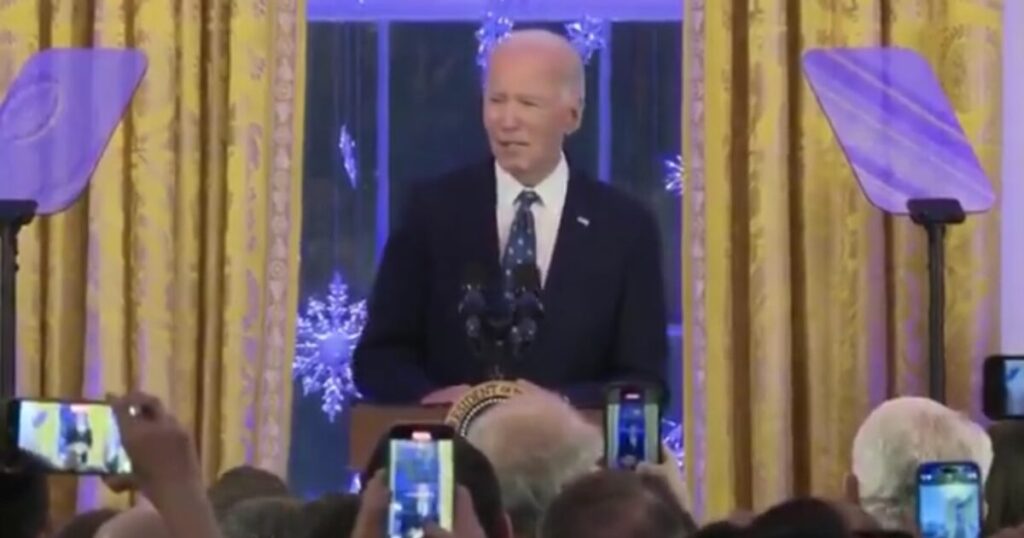During a recent Hanukkah reception at the White House, President Joe Biden made a startling claim regarding the release of hostages from Gaza, asserting he had facilitated the release of over 100 individuals. This statement has drawn controversy and skepticism, particularly since there are ongoing concerns about the hostage situation and the conflict in the region. During his remarks, Biden acknowledged the heavy hearts present due to the traumas stemming from the events of October 7, when hundreds were taken hostage and over 1,000 were killed amidst widespread violence. His speech, which sought to connect with those affected by these tragedies, was intended to convey empathy while reinforcing the U.S. commitment to Israel and the Jewish community.
Biden’s assertion regarding the hostages has been met with incredulity. Critics have pointed out that there is no evidence supporting the claim that he or his administration secured the release of more than 100 hostages. This inconsistency raises questions about the reliability of his statements and the potential implications for U.S.-Israel relations. As the administration navigates a complex geopolitical landscape, the details around the hostage situation remain fluid, making precise claims particularly sensitive and potentially misleading. Biden’s declaration could be seen as an attempt to project strength and show a proactive stance amidst ongoing tensions.
Apart from discussing the hostage situation, Biden also expressed his unwavering support for Israel, stating that his commitment to the safety of the Jewish people remains “ironclad.” This rhetoric aims to reinforce the U.S.’s longstanding alliance with Israel, especially in the context of escalating regional conflicts and rising anti-Semitism. By framing himself as a staunch advocate for Israel, Biden seems to be signaling to both domestic constituents and international partners that he takes seriously the threats faced by Israel and the Jewish community worldwide. His declarations may also serve to galvanize support at a time when public opinion can be divided over the complexities of Middle Eastern politics.
Furthermore, Biden spoke about the personal experiences that shaped his views on the Holocaust, sharing that he took his grandchildren to former Nazi concentration camps in Europe to educate them about this dark chapter in history. He emphasized the importance of recognizing historical atrocities to prevent their repetition, underscoring his belief that understanding the past is essential for fostering a more secure future. This emphasis on memory and education reflects a broader commitment to Holocaust remembrance and the values of tolerance and understanding.
Biden’s declaration of being a Zionist was another notable moment in his speech, asserting that one does not necessarily have to be Jewish to support Israel’s existence. This statement is aimed at reinforcing the notion of solidarity across different communities, advocating for a universal recognition of the Jewish state’s right to exist. By labeling himself as a Zionist, Biden seeks to align himself with a broader movement of support for Israel, while also appealing to pro-Israel constituents in the U.S. His position aims to cultivate a sense of unity in the fight against anti-Semitism and bolster efforts to promote peace in the region.
In conclusion, Biden’s comments during the Hanukkah reception reflect a blend of personal conviction and political strategy. While his assertions concerning the release of hostages and his unwavering support for Israel resonate with a segment of the population, they also raise important questions about the accuracy of such claims in a complicated geopolitical context. As Biden seeks to navigate the delicate balance of supporting ally nations while addressing domestic and international criticisms, his statements remind us of the enduring significance of historically rooted conflicts and the complexities of contemporary politics in shaping both perceptions and realities in the Middle East.

